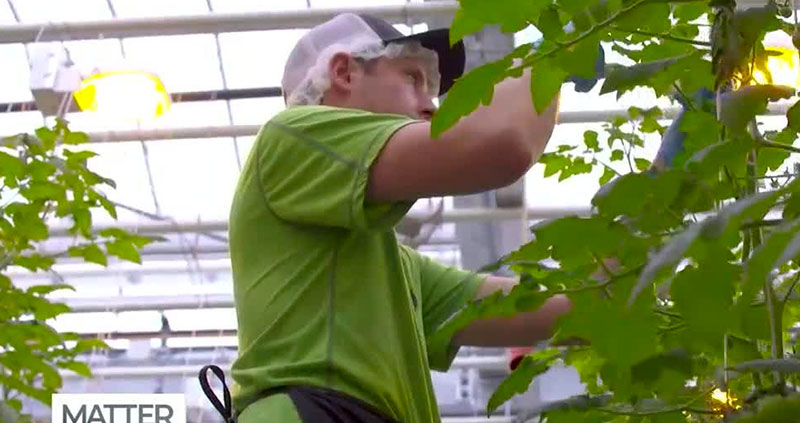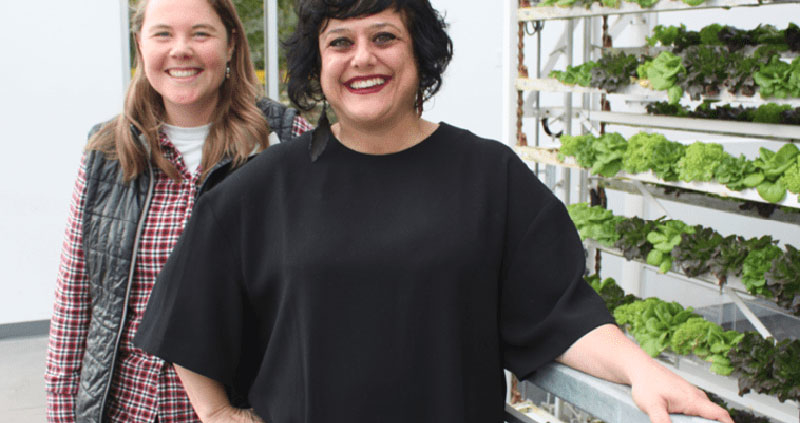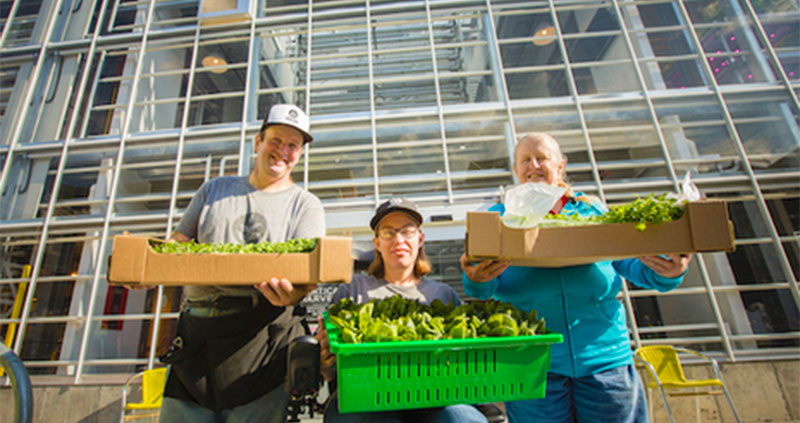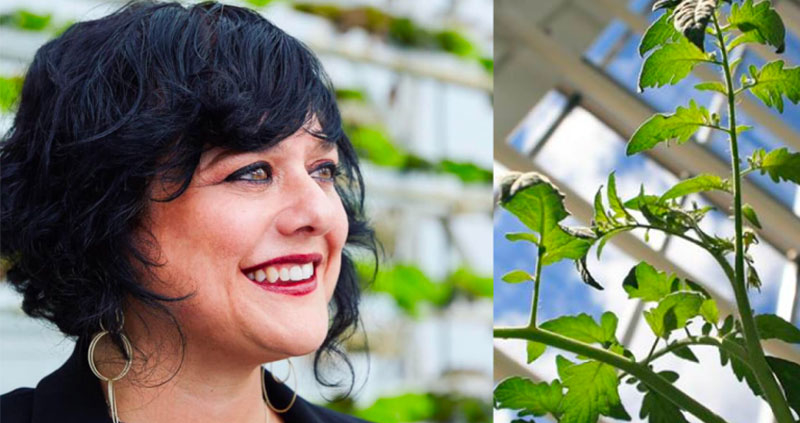
Public News Service
An indoor vertical farm in Jackson that produces and sells roughly 100,000 pounds of fresh produce annually is powered by a workforce built on the concept of diversity.
Nearly two-thirds of Vertical Harvest’s workers face disabilities, including autism, Down syndrome or vision, speech and learning impairments.
Caroline Croft Estay is a company co-founder and says inclusive, integrated workplaces are game changers for businesses because they bring in new energy – everybody is excited to clock in.
“They’re ready to work, they’re on time, they work hard,” she states. “And it really shifts the culture, and kind of raised the bar for all of us, creating this really beautiful, fluid workplace where everybody works together and works hard.”
The three story hydroponic operation produces as much food as a traditional five acre soil farm, year round, and with a lot less water.
Vertical Harvest workers grow about 25 varieties of micro and specialty greens, lettuces and tomatoes.
But Croft Estay adds that workers also are trained to tackle administrative tasks, sales, marketing, customer service and technical maintenance.
Croft Estay says while the training process for workers with disabilities can require an upfront investment, the long-term outcome is substantial.
She also maintains there’s a job out there for every individual who wants one, regardless of their specific ability level, and says everyone has a right to work.
“And yes, the training can take a little bit longer, but then the commitment and the dedication,” she states. “We have no turnover. Everybody that works at the greenhouse stays at the greenhouse, and wants to stay at the greenhouse.”
Croft Estay hopes businesses of all types will come to see people with different abilities as an untapped and valuable workforce, eager to give back to their communities and earn real wages.
Nationally, 25% of people with disabilities currently live in poverty, and just one in three is employed.


